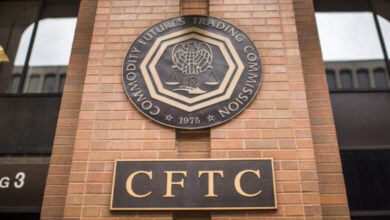Wanchain CEO Jack Lu: Why 2.0 is a Milestone for the Entire Blockchain Industry

The world’s first interoperable blockchain was launched today by Wanchain in Amsterdam. At the pre-launch, in London on Thursday, Blockchain News caught up with Wanchain’s CEO, Jack Lu, to find out why this is such a significant milestone not just for the company, but for the industry as a whole.
Blockchain News: Wanchain has an ambitious event schedule lined up, what are you trying to achieve?
Jack Lu: I have an engineering background and I’ve been focusing on the product for, at least, the past six months. After we launched Wanchain 1.0 and went live in January this year, we were very focused on developing the product for 2.0, which is our biggest milestone–a cross-chain– and we’re ready to launch our mainnet in just a few days. We’ve been doing pre-launch events, touring the world, telling people we are the first ones in the world to reach this milestone. This milestone is huge, not only for our project but also for the industry. So that is why we have been doing this world tour—to promote our own chain and, at the same time, to bring all these projects—the ecosystem of Wanchain—with us. The Wanchain ecosystem is very, very important. That’s why, in the past few weeks, we’ve visited three cities in Asia. This is my fourth city in this world tour. After this, we’ll go live and I’ll go back to development and the team will continue the tour.
Blockchain News: Please tell us a little about how you became involved in blockchain and how you started Wanchain.
Jack Lu: I got into the blockchain space sometime in 2012. I just bumped into Bitcoin and started investing and I got some big returns in the early days. I was a software engineer and also I had some background in economics. So when I saw Satoshi’s paper and other blockchain-related articles, I just felt that this is my destiny. This is something that I have to do. I just fitted this really well. It’s a great economic experiment for Bitcoin. I got involved in this more and more and felt that I needed to jump in full time
So, in 2014, I started in the Ethereum world, in the investing group, when it first started, and just followed their project. I became the developer of their community in Austin, Texas. At the same time, I was also introduced to the opportunity to be the co-founder and CTO of Factom. At the time, I made a decision to invest all my Bitcoins into Ethereum and invest all my time into the Factom project. Luckily enough, both these projects were a huge success after a couple of years. As you know, the price of Ethereum went up through the roof and so did Factom.
In 2016, I decided to pursue my own dream, I wanted to launch my own project and I set up a company called WanGlue China and started looking at what space I wanted to be in and what I wanted to do. It just fitted really well, this Wanchain idea. It slowly matured. I had an idea but I wasn’t sure it could be done. I had a research team and we looked into this for a long time. Finally, we found a solution—a very generic solution—to enable us to connect or integrate with any blockchain with one single mechanism or design. The technology is called secure multi- party computation and also threshold key sharing technology. This technology allowed us to connect with pretty much any blockchain, including private chains, which is very important because a lot of traditional financial organizations, enterprises, would rather use enterprise solutions—private consortium chains—and these assets will be like the intranet of the old days. It’s just a set of computers which are connected, they are not interconnected with the rest of the world. Once we get these blockchains connected with the outside world… to really make this an internet, that’s how the old internet evolved–that’s the path we have to get across. So, I saw that requirement and we basically picked the solution that will allow us to interconnect not only with the public chains like Bitcoin and Ethereum, but also with private chains. We found a way. In 2016 we found a solution and we started incubating the solution called Wanchain.
WAN stands for Wide Area Network, anyone who studied computing will know, it’s trying to connect a bigger network, connecting all theses intranets and creating something called the internet of blockchains, connecting all these siloed islands. Private chains are siloed islands and also Bitcoin and Ethereum. It seems like they’re global but actually they’re islands. Each one of them speaks different languages and they don’t talk to each other. So, we need to have some kind of generic solution that will interconnect with all these private chains and also public chains, and that is very powerful.
At the same time, I found that getting them connected may not be the whole solution, we need something more than that. Because I was a strong believer in Ethereum, I figured to create something called a “programmable digital economy” is so important. I wanted to create smart contracts that can extend to all these blockchains; smart contracts that can be executed across different blockchains.
In any economic activities–we call them digital economies–privacy is the most important thing because there are a lot of violations in privacy, including big companies like Facebook and Google. A lot of blockchains, like Bitcoin and Ethereum, don’t have privacy features, they have something like pseudo-anonymity, users activities can be still be traced. For enterprise businesses, privacy is just a must-have. I saw that and that’s the future for any blockchain, you must have privacy protection. At the same time, the government, or any other authority, will be able to audit private transactions. So, we created privacy protection that will allow the authority [to do this] as long as the transacting parties agree. They can provide something called the “view key” that will allow the authorities to audit private transactions.
Blockchain News: You’re working, then, towards a future where there will be regulation?
Jack Lu: Certainly.
Blockchain News: What sort of timeframe are you working towards? When do you think it will happen?
Jack Lu: Pretty quickly. I think that as long as we are connecting with the private chains, the governments can come and say, “Well, first you have to do KYC/AML [Know-Your-Customer/Anti-Money-Laundering], you have to have your identity verified in order to conduct certain transactions, like trading certain assets and getting certain financial access”. But the thing is, even with their real identity, people want to have privacy, they don’t want anyone to trace or track their transactions, their activities. But once the government wants to audit, you want to provide proof that “Here, I conducted all of these legally, I pay my taxes”. So, we need to create an infrastructure that is capable of complying with all these regulations.
With all these requirements in mind, we came up with a solution. The solution’s just three key technologies: privacy protection, cross-chain and smart contracts. We think they will be able to fulfill all these requirements. Earlier this year, we completed two of them; we implemented private smart contracts. Now, in July, we’ve implemented the third one, it’s called cross-chain. So we’ve basically got the three key technologies, for all the requirements that we’ve talked about for the digital economy, and we think that these three technologies will solve pretty much all the issues. And now we are here, we’ve accomplished all the things we have promised to the community. Voila, we are here and ready to launch our key pillar.
Blockchain News: That’s impressive. Are you keeping to schedule?
Jack Lu: Pretty much on schedule. I’ve been in IT, in the software development business, since the late 90’s, more than 20 years. I know things are never right on time, there are always some problems here and there. For blockchain, security is most important, we want to make sure there are no security flaws and, since we launched [1.0] in January, there are zero problems so far. And we’ve heard of so many issues for many blockchains. I hope that the issues won’t come for us.
Blockchain News: What steps have you taken to avoid these kinds of problems?
Jack Lu: We take extra steps. Before we launched in January, we took two months to test the environment. It took us one month to do alpha testing and before that our community teams had already conducted vigorous testing—internally first, before we released to the public. It’s the same thing for 2.0. Actually, our alpha test network was ready two months ago. And the beta network was ready a month ago. We’ll just try our best. I’m sure that no problems will happen.
Blockchain News: You have an incubator, WanLabs, now, as well. There’s been some questioning that maybe you’re focusing too much on that at the expense of the technology. How would you answer these criticisms?
Jack Lu: To create our infrastructure, which I call Wall Street 2.0, if nobody comes, then it’s useless, right? So we’ve got the infrastructure ready, the basic technology is ready–that’s not enough. For this Wall Street 2.0 infrastructure to succeed, we’ve got to have a lot of buildings and a lot of people come here and create all these applications, to create real use cases. So that’s why were want to have the WanLab program and bring all these projects with us and grow the community together. The project team owns the core technology but we don’t own the network, the community does. We need to bring all these community members into the ecosystem. We own this ecosystem together and we need to build it together. It’s a natural process. If nobody comes, then we’ve failed. So we have to build this together.





